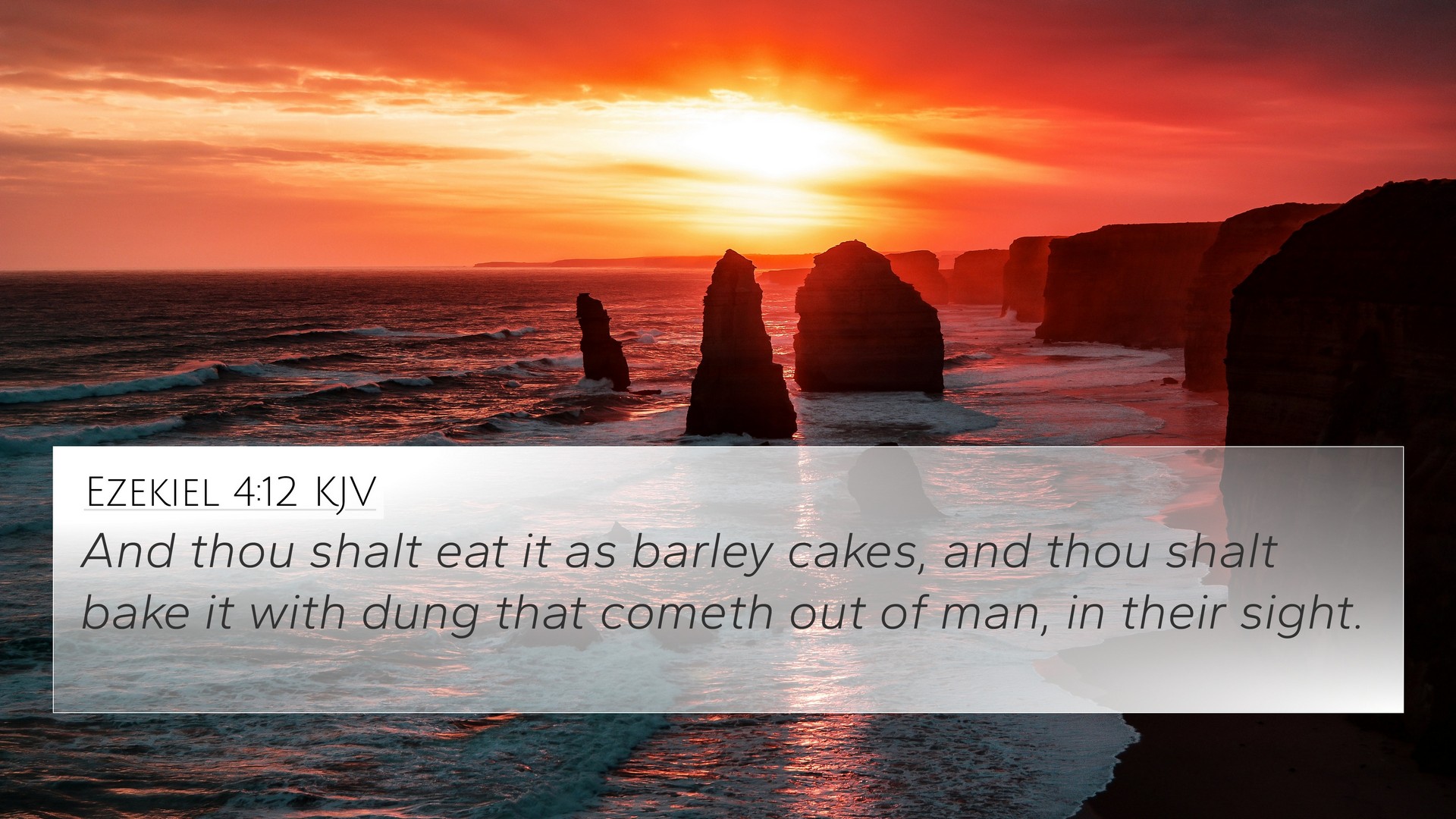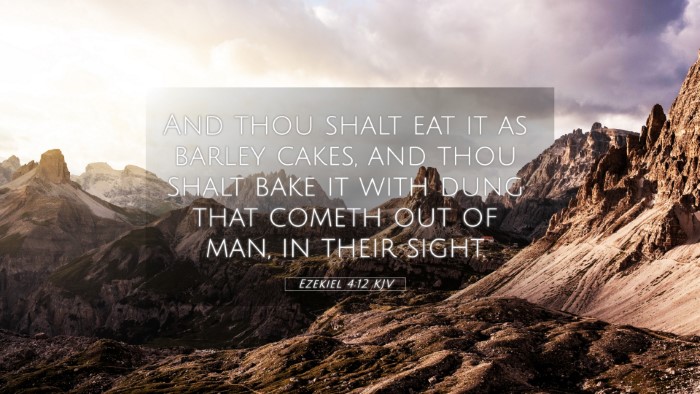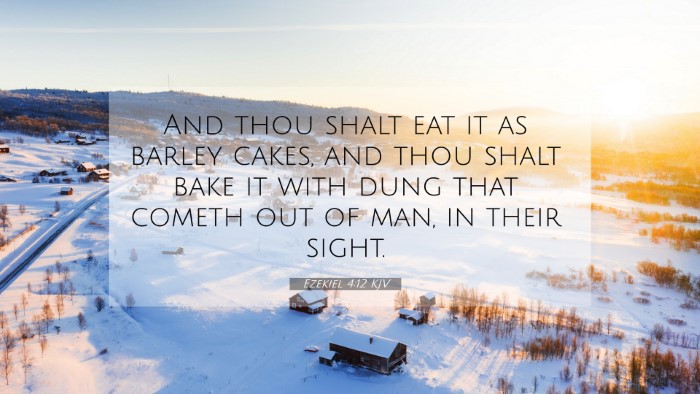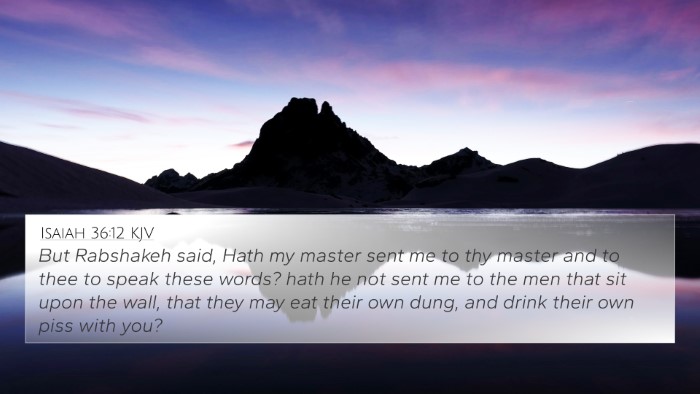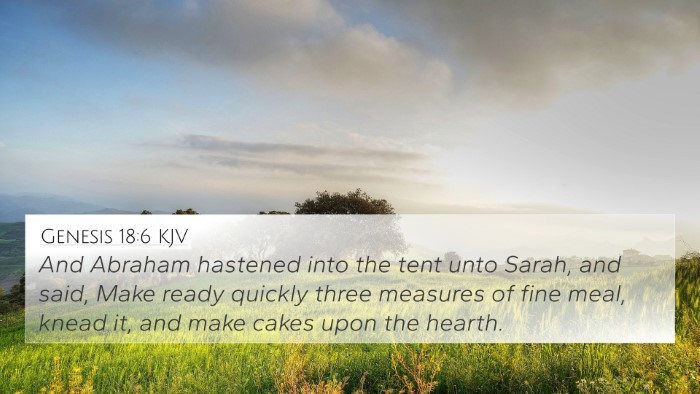Ezekiel 4:12 - Understanding the Verse
Ezekiel 4:12 states: “And you shall eat it as a barley cake, baking it in their sight on human dung.” This vivid imagery reflects the severe conditions that the people of Israel would endure due to their disobedience to God. Understanding this verse requires consideration of its context and the surrounding themes of judgment and necessity.
Verse Context
The context of Ezekiel 4 deals with God instructing the prophet Ezekiel to illustrate through actions the impending siege of Jerusalem. Through the symbolic act of eating food prepared under dire circumstances, God communicates the severity of the situation the Israelite people will face.
Commentary Insights
Several public domain commentators provide valuable insights into this particular verse:
- Matthew Henry explains that this command serves to signify the scarcity of food they will encounter during the siege. By eating food prepared on dung, Ezekiel acts out the degradation and humiliation that the people will experience.
- Albert Barnes elaborates on the notion that eating food prepared in such a manner signifies the defilement of the Israelites. It represents the idea that their sin has brought them to a state of moral and physical degradation.
- Adam Clarke points out that the act of burning food on human dung serves as a divine warning. It shows the people how dire and unclean their situation will become during the Babylonian captivity, signifying that they will not be able to worship freely or eat properly.
Thematic Analysis
This verse connects to broader themes in Scripture, such as:
- Judgment and Consequences: The actions of Ezekiel reflect the severe consequences of Israel's unfaithfulness to God.
- Symbolism in Prophetic Acts: This serves as an example of how prophetic acts can be used to convey deep spiritual truths.
- Human Condition: It reveals the extent of human suffering when straying from God's covenant.
Cross-References
Here are some Bible cross-references that relate to Ezekiel 4:12:
- Lamentations 2:20-22: Similar themes of suffering and scarcity are echoed.
- Isaiah 4:4: Illustrates the purification needed for God's people.
- Jeremiah 14:3-4: Discusses famine, aligning with the food shortage imagery in Ezekiel.
- Matthew 15:17-20: Jesus speaks about what defiles a person, paralleling the spiritual defilement Ezekiel symbolizes.
- Revelation 6:6: Relates to the themes of scarcity and economic hardship during judgments.
- Deuteronomy 28:53-57: Addresses the dire straits that will come upon those who disobey God.
- Psalm 78:18: Reflects on the dissatisfaction of the people and their longing for nourishment in God's providence.
Concluding Thoughts
The account in Ezekiel 4:12 serves as a poignant reminder of the consequences of turning away from God. It also invites readers to explore connections between biblical texts, enabling deeper insights into the overarching narrative of sin, judgment, and the need for repentance.
Tools for Bible Cross-Referencing
To further explore the connections between Bible verses, consider utilizing:
- Bible concordance: A valuable tool for finding terms and their references throughout Scripture.
- Bible cross-reference guide: Helps in locating themes and teachings that span various books of the Bible.
- Cross-reference Bible study: Engages in a deeper examination of how different passages illuminate each other.
